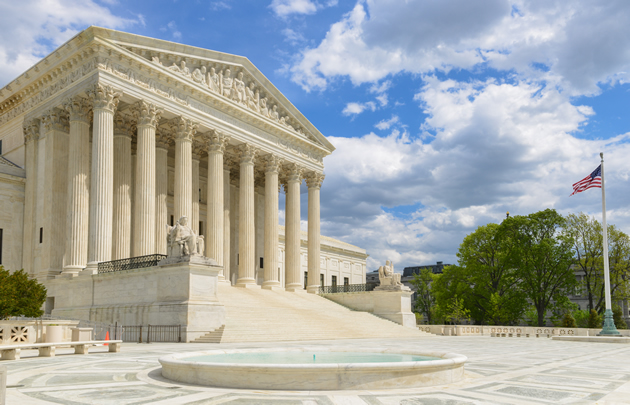SIULAW Professors Buys, Fountaine, and Macias talk with the Daily Egyptian about the impact of Judge Ginsburg’s death on the Supreme Court
October 19, 2020 ,

The death of Ruth Bader Ginsburg, who served for 27 years in the U.S. Supreme Court, affected the hearts of many Americans and is impacting the political climate of the United States.
SIU Law School professor Cynthia Fountaine said with Ginsburg’s passing, America has lost an important member in women’s, and indeed America’s, history.
“She was a long standing member of the court who maintained cordial relations with many of the justices, regardless of their political affiliations, and I think that was one of the things that made her stand out in a positive way,” SIU Law School professor Cindy Buys said.
Justice Ginsburg made decisions that supported the individual’s rights, Buys said.
“She was on the left, or more liberal end of the political spectrum, often siding with decisions that protected individuals rights, whether that be gender discrimination cases or cases based on sexual orientation,” Buys said.
Since Ginsburg was on the liberal end of the political spectrum, her death has the potential to affect the Supreme Court in a number of ways, SIU Law School associate dean and associate professor Steven Macias said.
“If the current nominee goes through it will currently have an impact on the liberal versus conservative majority on the Court,” Fountaine said.
Buys said that it is likely President Trump will appoint someone who is more conservative on issues like gender discrimination or sexual orientation.
There has been some debate about whether a Supreme Court nominee should be confirmed so close to an election.
During President Obama’s candidacy, the Senate would not give a hearing to his justice nominee because some senators said they did not think it was appropriate to do that in the last year of the presidency, Buys said.
Fountaine said it seems that the Senate is trying to move quickly so they can get it approved before the election.
Two Republican members of the Senate, Senator Susan Collins and Senator Lisa Murkowski, have said they will not support Trump’s nominee.
“They view it as being hypocritical to have blocked President Obama four years ago and now trying to allow President Trump to confirm,” Macias said.
On Sept. 26, Trump nominated Amy Coney Barrett to replace Justice Ginsburg on the Supreme Court.
This nomination has the potential to have a big effect on the Supreme Court and what happens within it.
The Senate contains sufficient members of the president’s party, so they can confirm her without any Democrats joining them, Buys said.
“It appears that she has been well received so far in the Senate,” Fountaine said.
The Supreme Court, with Barrett’s addition, will have enough members who would be willing to overturn something like Roe v. Wade, Macias said.
The 1973 decision in Roe v. Wade established a woman’s right to choose to have an abortion.
Decisions made in the Supreme Court can affect the lives of many Americans.
Areas that can be affected by the Supreme Court are religious liberty, gender equality and same sex marriages, Macias said.
“When you talk about the other cases that garner so much attention, when it comes to gay marriage, reproductive rights, immigration issue and things like that. Those have a much broader impact,” Buys said.
People should care about the Supreme Court and what is happening in it right now because it involves their rights and how much the government can regulate what we do, Fountaine said.


